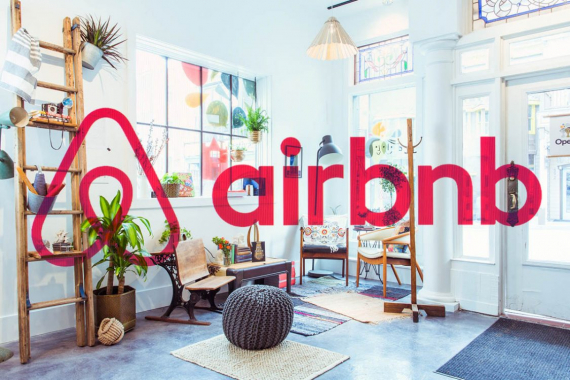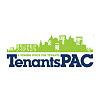
More than 37,000 New York City homes on Airbnb will have to be registered with the City thanks to a new law by Council Member Ben Kallos that passed the City Council, and which the Mayor is likely to sign. As the city seeks to recover from the pandemic, New York City hotels sat empty losing $4 billion in revenue while Airbnb posted its highest ever revenue of $2.2 billion, thanks in part to 37,274 listings in New York City. 19,782 of Airbnb’s listings are for entire homes, many of which may be illegal and are only exacerbating the affordable housing crisis. The legislation authored by Kallos with TenantsPAC would cover any short-term rental host as well as any platform that facilitates payments, including companies like Booking.com, HomeAway, FlipKey, and VRBO.
“Housing should be for New Yorkers. Hotels should be for tourists. We need every apartment being listed illegally on Airbnb back on the market to help our affordable housing crisis. At a time when hotels are closing or sitting there empty it is crazy to see apartments all over the city getting converted into illegal Airbnbs,” said Council Member Ben Kallos. “Thank you to Tenants PAC and the Coalition Against Illegal Hotels for their expertise and assistance in getting this important legislation drafted and introduced.”
"The Coalition Against Illegal Hotels and our city and state legislative allies have worked for years on this bill. It's been a long time coming but once it goes into effect it will make it impossible for bad actor landlords to misuse our scarce rental housing for short-term profit. Once again we prevailed over Airbnb despite all its money. They will be back in Albany next year once again trying to weaken our rental housing laws, and we are prepared to do battle with them once again. So far Airbnb is batting zero," said Michael McKee, leader of TenantsPAC.
The nearly 20,000 “entire homes or apartments” listed on Airbnb might be illegal if they are in buildings with 3 or more apartments, according to state law. State law only allows short term rentals for less than 30 days, where the resident is home at the time. These laws are enforced in New York City by the Mayor's Office of Special Enforcement (OSE), however, due to various issues including legal challenges to the existing reporting requirements, it has been practically impossible to enforce this law in New York City.
Prior to the pandemic, reports surfaced of multi-million dollar short-term rental schemes by unscrupulous individuals who rented apartments to “tens of thousands of guests for 55,331 nights over three years across 35 different buildings.” This was one egregious case where the current law worked, but as the data reveals, these abuses remain a growing issue.
Under the law, homeowners and tenants would be required to register their homes or apartments with the city. Applicants would be required to certify that they are the owner or tenant, to designate an area for guests, certify that hosting does not violate the terms of their lease or the law, and provide the URL for any listings. All advertisements would be required to include a valid registration number.
For hosts, the city would confirm that the home is not in public housing, a rent regulated apartment, or city subsidized housing, or on the “prohibited buildings list” where the owners or management have forbidden short-term rentals. Upon receiving an application, the city would also notify the owners of record for the home. As referenced, building owners, condominium associations, and cooperative boards could put themselves on a “prohibited buildings list.” In addition, a list of all registration numbers, URLs, addresses, and expiration dates would be available in open data.
Platforms that list homes for registered hosts would also be required to register with the city, list registration numbers, verify registration numbers prior to processing transactions, and obtain a confirmation of verification for each transaction.
Fines for hosts would range from $1,000 to the lesser of $5,000 or three times revenue from illegal rentals. Fines for platforms would be limited to the higher of $1,500 or the total fees collected from illegal transactions.
This registration system is modeled on similar systems in other cities like San Francisco, Chicago, Portland, and most recently, Santa Monica.
“New York City – and its housing – belongs to New Yorkers. For too long, bad actors have robbed our housing stock of affordable units in order to turn a profit on illegal short-term rentals. In 2018, I worked with the Mayor on groundbreaking legislation to address this issue, finally bringing accountability to corporate tenants who haven’t been good neighbors, and returning affordable housing to the communities that need it most,” said co-prime sponsor Council Member Carlina Rivera. “Int. 2309 is our clear next step in addressing illegal short-term rentals. By requiring hosts to register short-term rentals with the City and submit their registration number to home sharing platforms before listing, this bill protects both our affordable housing and legal operators of short-term rentals.”
“Every illegal short-term rental in our city represents a unit of housing that is not available for real New Yorkers to live in, and in the middle of a global pandemic and an ongoing affordable housing crisis, the city must do everything it can to stop this harmful practice. Enforcement of our short-term rental laws is critical, but has been extraordinarily difficult in spite of the heroic efforts of the Mayor’s Office of Special Enforcement. So I am very pleased that Council Member Kallos, Speaker Johnson, and Mayor de Blasio worked closely with residents and housing advocates to create a registration system that will provide vital information to identify and stop illegal rentals,” said State Senator Liz Krueger (D-Upper East Side).
“The Coalition Against Illegal Hotels has been working for four years to write, introduce, and pass 2309. This legislation will preserve NYC’s affordable housing while at the same time protecting legal home sharing in the city,” said Tom Cayler, of Coalition Against Illegal Hotels & West Side Neighborhood Alliance. “We applaud Councilman Kallos, the other Council sponsors, and all the neighborhood housing advocacy groups who work so hard to keep New Yorkers in their homes.”
“As an activist fighting the impact of short-term rentals on residential communities and affordable housing around the world, I applaud the New York City Council for passing this important law that returns valuable housing back to the market and allows New York City to join the likes of Paris, Barcelona and Amsterdam with world class legislation that affirms a commitment to the right to housing," said Murray Cox of Inside Airbnb.











